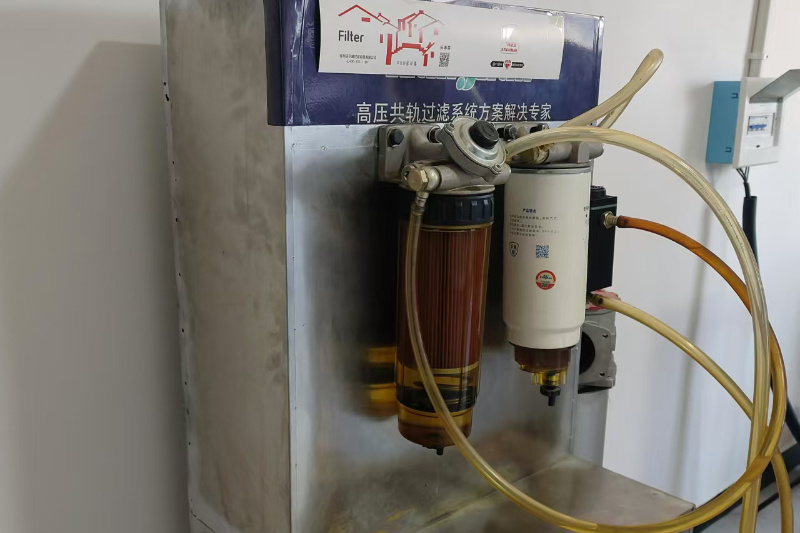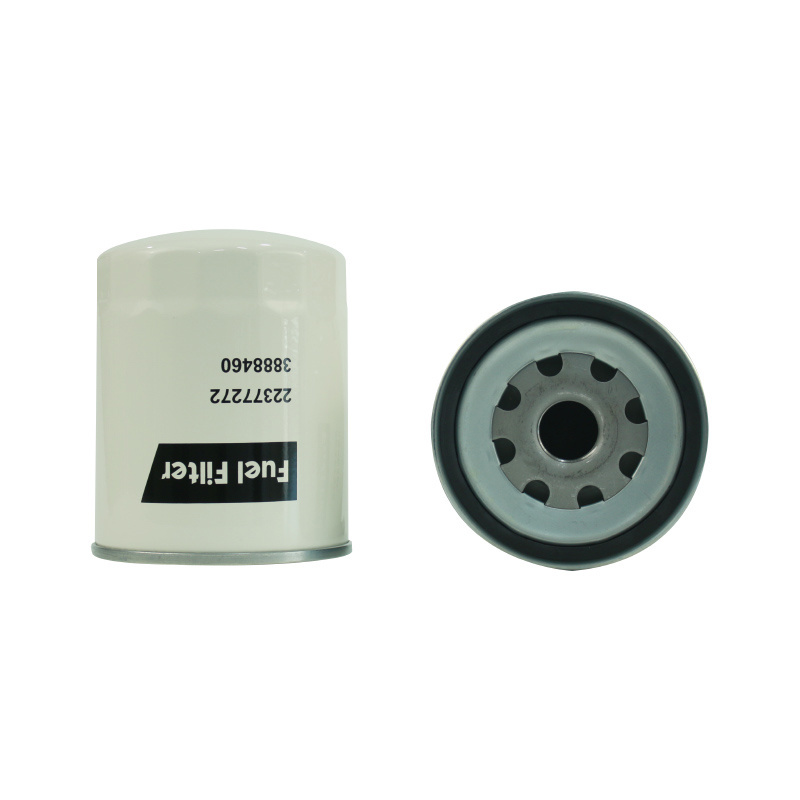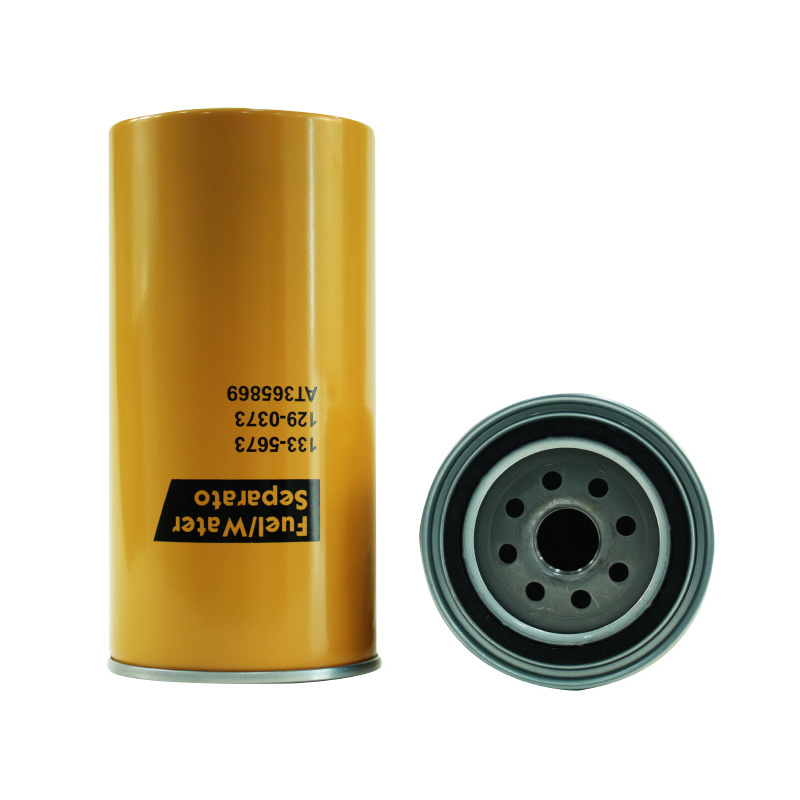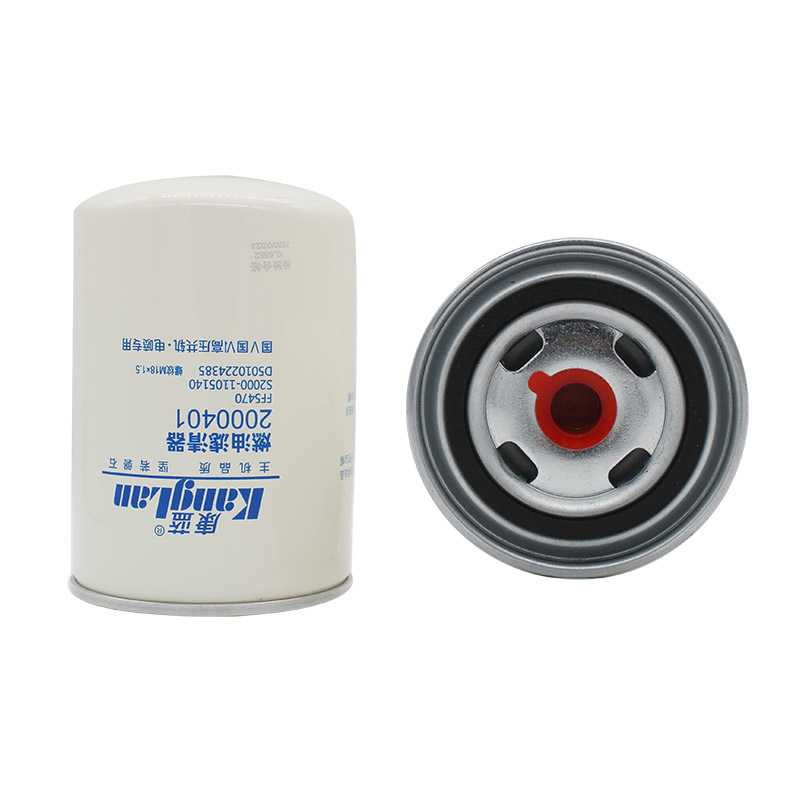Welcome to Hebei Takai Vehicle Parts Technology Co., Ltd.
How to Extend the Life of Your Tractor's Hydraulic Oil Filters: Essential Tips for Optimal Performance
Release Time:
Apr 26,2025
How to Extend the Life of Your Tractor's Hydraulic Oil Filters: Essential Tips for Optimal Performance Table of Contents 1. Introduction 2. Understanding Hydraulic Oil Filters 3. Importance of Maintaining Hydraulic Oil Filters 4. Regular Inspection and Maintenance Practices 4.1 Scheduled Filter Changes 4.2 Cleaning Procedures 4.3 Monitoring Fluid Conditions 5. Choosing the Right Hydraulic Oil Filt
How to Extend the Life of Your Tractor's Hydraulic Oil Filters: Essential Tips for Optimal Performance
Table of Contents
1. Introduction
2. Understanding Hydraulic Oil Filters
3. Importance of Maintaining Hydraulic Oil Filters
4. Regular Inspection and Maintenance Practices
4.1 Scheduled Filter Changes
4.2 Cleaning Procedures
4.3 Monitoring Fluid Conditions
5. Choosing the Right Hydraulic Oil Filter
6. Quality Hydraulic Oil: A Key to Longevity
7. Common Mistakes to Avoid
8. Frequently Asked Questions
9. Conclusion
1. Introduction
In the world of agricultural machinery, **tractors play a vital role** in ensuring efficient operations. One of the most critical components of a tractor is its hydraulic system, which relies heavily on hydraulic oil filters. These filters not only keep the hydraulic fluid clean but also contribute significantly to the overall efficiency and performance of the machinery. In this article, we will explore **effective strategies** to extend the life of your tractor's hydraulic oil filters, ensuring your equipment runs smoothly for years to come.
2. Understanding Hydraulic Oil Filters
Hydraulic oil filters serve as the first line of defense against contaminants in the hydraulic system. They remove dirt, debris, and other harmful particles that can lead to **increased wear and tear** on critical components. Understanding how these filters work helps us appreciate their importance in maintaining the overall health of your tractor.
There are various types of hydraulic oil filters, including **suction filters, return line filters, and pressure filters**. Each type has a specific role in the hydraulic system, but all share the common goal of ensuring clean hydraulic fluid.
3. Importance of Maintaining Hydraulic Oil Filters
The maintenance of your hydraulic oil filters cannot be overstated. Regular upkeep ensures that the hydraulic system operates efficiently and minimizes the risk of breakdowns. A well-maintained filter system leads to:
- **Enhanced hydraulic performance**: Clean oil is crucial for optimal hydraulic function.
- **Reduced operational costs**: Preventing damage to components can save on expensive repairs.
- **Extended equipment lifespan**: Proper maintenance contributes to the longevity of the tractor.
Prioritizing the maintenance of hydraulic oil filters is not just an option; it’s a necessity for anyone looking to make the most out of their investment.
4. Regular Inspection and Maintenance Practices
Implementing a routine inspection and maintenance schedule is essential for prolonging the life of your tractor's hydraulic oil filters. Here are some best practices:
4.1 Scheduled Filter Changes
Changing your hydraulic oil filters at prescribed intervals is one of the most effective ways to keep them functioning optimally. Check the manufacturer's recommendations for **change intervals**, but a general rule of thumb is to replace filters every **500 hours of operation** or as needed based on performance. Ignoring this step may lead to clogged filters, reduced flow rates, and increased system pressure, all of which can cause significant damage in the long run.
4.2 Cleaning Procedures
In addition to replacing filters, regular cleaning can extend their lifespan. Depending on the type of filter, a thorough cleaning might involve:
- **Backwashing**: Reverse the flow of fluid to remove accumulated debris.
- **Bleeding**: Release trapped air to prevent blockages.
- **Visual Inspections**: Look for physical damage or signs of wear.
Cleaning should be done cautiously to avoid damaging the filter material.
4.3 Monitoring Fluid Conditions
Monitoring the condition of the hydraulic fluid is vital for filter longevity. Contaminated fluid can severely impact filter performance. Conduct regular tests to check for:
- **Viscosity**: Ensure the fluid maintains the correct viscosity for optimal performance.
- **Contaminants**: Regularly inspect for signs of dirt, water, or metal particles.
Incorporating fluid monitoring into your maintenance routine can help identify issues before they escalate.
5. Choosing the Right Hydraulic Oil Filter
Selecting the appropriate hydraulic oil filter for your tractor is crucial for ensuring optimal performance. When purchasing filters, consider the following factors:
- **Compatibility**: Ensure the filter fits your tractor's specifications.
- **Quality**: Opt for filters from reputable manufacturers to guarantee reliability.
- **Performance Ratings**: Look for filters with high dirt-holding capacities and filtration efficiency.
Investing in quality components will pay off in the long run, significantly enhancing the lifespan of your hydraulic system.
6. Quality Hydraulic Oil: A Key to Longevity
The type of hydraulic oil used in your tractor significantly impacts the performance of the hydraulic oil filters. Here are some considerations:
- **Select the right viscosity**: The oil must be suitable for your tractor's operational conditions.
- **Choose high-quality fluids**: Premium hydraulic oils often contain additives that enhance performance and protect against wear.
- **Regular fluid changes**: Just as with filters, changing hydraulic oil at regular intervals prevents contamination and prolongs filter life.
By prioritizing high-quality hydraulic oil, you effectively protect your hydraulic oil filters and your entire system.
7. Common Mistakes to Avoid
Avoiding certain pitfalls can significantly enhance the longevity of your hydraulic oil filters. Here are some common mistakes tractor owners make:
- **Neglecting routine maintenance**: Delaying filter changes can lead to catastrophic failures.
- **Using subpar filters**: Cheap filters may save money upfront but can cause expensive damage down the line.
- **Ignoring fluid quality**: Failing to replace dirty hydraulic oil can lead to increased wear on both filters and components.
Staying informed and proactive can help you circumvent these mistakes and ensure your tractor operates efficiently.
8. Frequently Asked Questions
Q1: How often should I replace hydraulic oil filters?
A1: It is generally recommended to replace hydraulic oil filters every **500 hours of operation** or as specified by the manufacturer.
Q2: What signs indicate that my hydraulic oil filter needs to be changed?
A2: Look for signs of reduced hydraulic performance, unusual noises, or increased system pressure, which can indicate a clogged filter.
Q3: Can I clean hydraulic oil filters instead of replacing them?
A3: While some filters can be cleaned, most are designed for single-use. Always refer to the manufacturer’s guidelines.
Q4: What types of hydraulic oil are best for my tractor?
A4: High-quality hydraulic oils with appropriate viscosity ratings and additives for wear protection are recommended for optimal performance.
Q5: How can I monitor the condition of my hydraulic fluid?
A5: Regularly test for viscosity and contaminants and visually inspect the fluid for any signs of degradation.
9. Conclusion
Extending the life of your tractor's hydraulic oil filters is an achievable goal with diligent maintenance and informed practices. By regularly inspecting and replacing filters, choosing high-quality components, and monitoring fluid conditions, you can ensure your tractor operates efficiently for many years. Implement these strategies to protect your investment, reduce downtime, and enhance the overall performance of your agricultural equipment. A proactive approach to your hydraulic system maintenance will undoubtedly pay dividends in the long run.
You Can Also Learn More About Industry Trends












